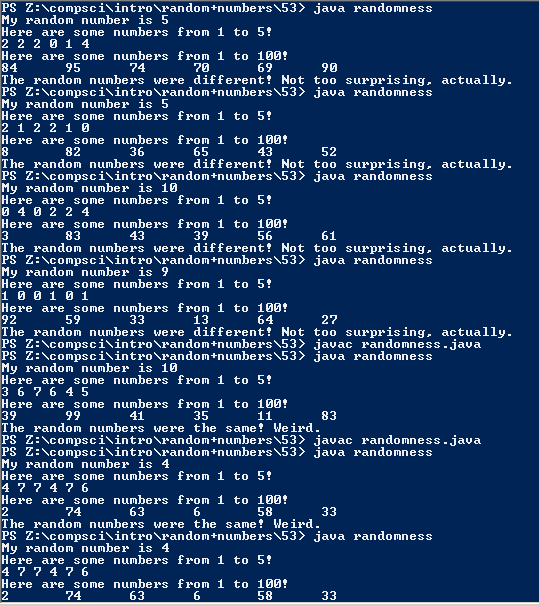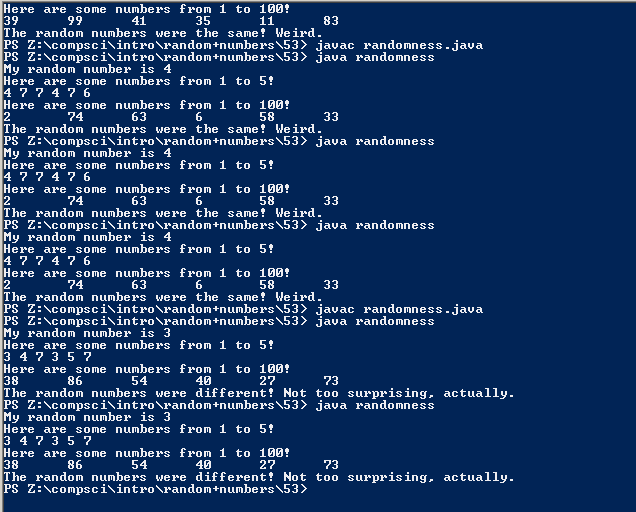///Name: Ilana Levy
///Period: 5
///Program Name: Randomness
///File Name: randomness.java
///Date Finished: 9/21/2015
import java.util.Random;
public class randomness
{
public static void main ( String[] args )
{
Random r = new Random();
///nothing changes with the numbers because they are locked into number bounds. however, if I deleted the bounds, the random numbers generated would all be between 0 and 123-1 which is 122.
int x = 1 + r.nextInt(10);
System.out.println( "My random number is " + x );
System.out.println( "Here are some numbers from 1 to 5!" );
System.out.print( 3 + r.nextInt(5) + " " );
System.out.print( 3 + r.nextInt(5) + " " );
System.out.print( 3 + r.nextInt(5) + " " );
System.out.print( 3 + r.nextInt(5) + " " );
System.out.print( 3 + r.nextInt(5) + " " );
System.out.print( 3 + r.nextInt(5) + " " );
System.out.println();
///I assume that deleting the 1 + makes the choice of random number go from 0-4 instead of 1-5
/// making the "1 +" into "3 +" makes the scale go from 3-7
System.out.println( "Here are some numbers from 1 to 100!" );
System.out.print( 1 + r.nextInt(100) + "\t" );
System.out.print( 1 + r.nextInt(100) + "\t" );
System.out.print( 1 + r.nextInt(100) + "\t" );
System.out.print( 1 + r.nextInt(100) + "\t" );
System.out.print( 1 + r.nextInt(100) + "\t" );
System.out.print( 1 + r.nextInt(100) + "\t" );
System.out.println();
int num1 = 1 + r.nextInt(10);
int num2 = 1 + r.nextInt(10);
if ( num1 == num2 )
{
System.out.println( "The random numbers were the same! Weird." );
}
if ( num1 != num2 )
{
System.out.println( "The random numbers were different! Not too surprising, actually." );
}
}
}

